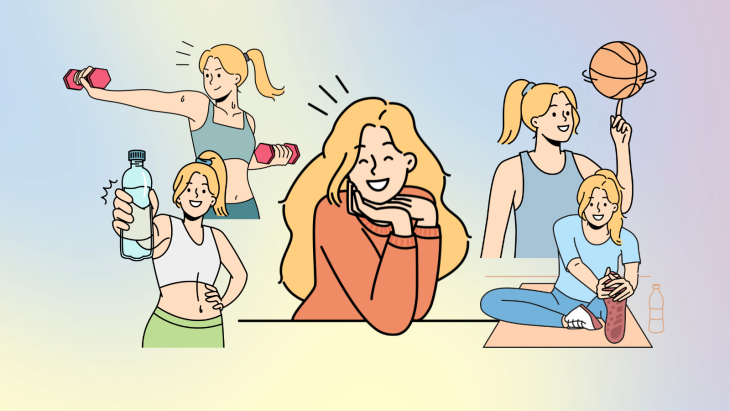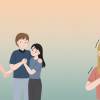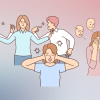Recent Posts
- The Anxious Generation. What is causing Gen Z's mental health crisis?
- Do you have to play games to make relationships work?
- Can a Therapist Find love? The Dating Life of a Therapist.
- Can a Therapist Benefit from Therapy?
- My kid's schedule is fully packed with after-school activities everyday. How much is too much?
Most Popular
I am looking at doing something active for mental wellness. How does engaging in physical activities like sports reduce stress and enhance my mental health?

Are you like me, who was physically active all throughout childhood, then when life hit, gradually became more and more sedentary? As we grew into our adult responsibilities, our priorities changed. Who has got time to run or go to the gym when we are preoccupied with our full time jobs and family responsibilities, right?
Now we encourage our children to engage in sports and other physical activities because we know that the benefits are beyond physical. Being physically active also has mental and social benefits. Meanwhile, adults like us, with our busy lifestyle, struggle with adjusting to an aging body, and days marked by low energy.
However, when we finally long for the feeling of being active again, being able to run, enjoying comradeship of teammates, and the feeling of joy we get from movement, then we wonder, “Is it not too late to engage in sports as an adult?”
The benefits of sports and physical activity in adults
Studies made about physical activity in adulthood show that engaging in an active lifestyle reduces pain, increases the release of hormones that make us feel fulfilled, decreases overall feeling of stress, and reduces our risk of developing chronic diseases and serious mental illnesses. Some studies also show that adults playing sports tend to make healthier lifestyle choices.
The challenge to a physically active lifestyle
Physical activity is defined as movement of muscles that allow us to spend energy. It is a type of stressor, but a more comfortable kind and it results in improved or maintained physical fitness.
We are familiar with the fact that indeed, physical activity is a method to decrease stress, but a large body of research also found something interesting about their relationship.
A review of more than 150 research studies show that the relationship of stress and physical activity is inversely related! It means that our experience of stress impairs our efforts to do physical activities, while engaging in a physically active lifestyle decreases our negative stress.
That is a challenge for adults who are already stressed out, and who might already feel defeated because their life situation might be hindering them from exercising.
So how do we even begin? Taking small steps to incorporate physical activities like sports can be helpful!
- Understand your stress.
Are you under acute or chronic stress? Was it from a traumatic event? Knowing the stress of your stress might help you decide the best way to deal with it. The more serious the effects of stress are and the longer it is allowed to accumulate in the body, the greater is its negative impact on the wear and tear of our mind and body. Thus, stress has to be managed so that your mind and body will not be compromised.
Studies show that our physical fitness plays a big role in our capacity to adapt to stress. In addition, it has been established that those who engage in exercise show lower rates of depression, of negative affect (i.e. mood, emotions) and anxiety.
- Find a sport or activity that suits your fitness level.
Stress may still occur if your skills that the sport requires does not match your current ability, or when you put too much pressure on yourself to level up to the standard of the sport. Reduce these by finding one that you can readily and easily do and adjust to so that you can enjoy the stress-relieving benefits.
Immediately, you will experience a boost in your positive attitude, self-esteem and discipline.
- Establish a routine around your chosen physical activity.
When you recognize that you are very busy in the afternoon and even up till nighttime, scheduling your exercise after work may not be realistic and not sustainable. Instead, schedule your exercise in days and times that are slower so that your stress will not impede your exercise.
Participating in a sport just two times a week, for 1.5 hours to 2 hours per session is possible to add to a busy schedule! Enjoy the benefits of stronger bones, a healthier heart, decreased risk for diabetes and high blood pressure. You can meet new people and improve your social skills too! If your sport is done outdoors, the fresh air you breathe improves the clarity of your mind and boosts your Vitamin D levels.
The benefits of engaging in sports and establishing an active lifestyle are numerous! Do not worry if you start small. The important thing is that you start. Give yourself a break, leave your desk, and take up a sport that you enjoy for a healthy and a joyful lifestyle!
If you want to pursue a career in the medical field, go over hundreds of job listings for mental health professionals and health care related job opportunities across the US!








Comments